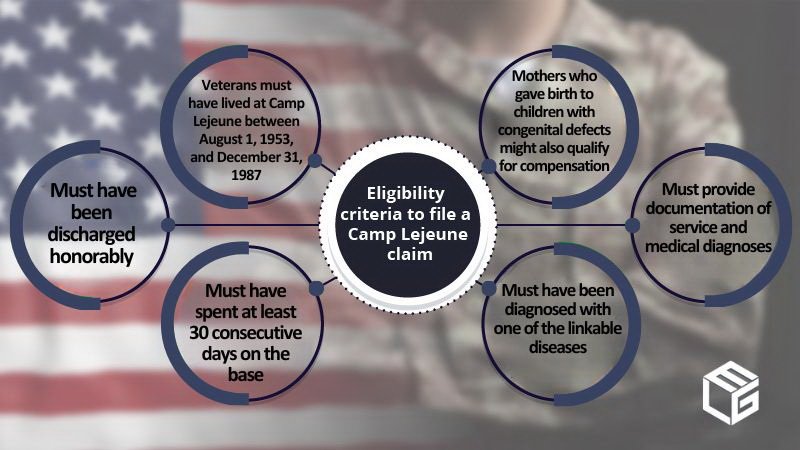Attention: We are no longer taking Camp Lejeune cases!
Exposure to perchloroethylene and vinyl chloride is positively associated with breast cancer
The unusual incidence of male breast cancer among Camp Lejeune veterans was first reported in 2009. Researchers examined 444 men born before 1969 who served in the U.S. Marine Corps and who had been treated for various cancers at the VA healthcare facilities.
Out of the participants, 71 had breast cancer, and 30 of these had been stationed at Camp Lejeune. The findings suggested a possible association between male breast cancer, being stationed at Camp Lejeune, and cumulative exposure to perchloroethylene, 1,2-dichloroethylene, and vinyl chloride.
Moreover, the researchers found that cumulative exposure to trichloroethylene, perchloroethylene, 1,2-dichloroethylene, and vinyl chloride showed possible associations with earlier age at the onset of male breast cancer.
Although male breast cancer is sporadic, with a low incidence of approximately 1 in 100,000 men, the scientists at the Agency for Toxic Substances and Disease Registry said the numbers suggested a possible association between male breast cancer and exposure to multiple contaminants found in the drinking water at Camp Lejeune. The study was published in the medical journal Environmental Health and identified these industrial solvents to play a role in the development of male breast cancer:
- perchloroethylene
- 1,2-dichloroethylene
- vinyl chloride
- trichloroethylene
When determining exposure, the researchers considered Marines who had more than one tour at Camp Lejeune and who might have left the base and come back. All tours not at Camp Lejeune were deemed unexposed. To assign categories of exposure, they used the estimated average monthly contaminant level in the drinking water system serving the individual's residence at the military base to determine average and cumulative exposure to the contaminants. The findings suggest that exposure to industrial solvents from drinking water while stationed at the military base might have accelerated the onset of male breast cancer.
Connection found between exposure to organic solvents and female breast cancer
A study from the medical journal Cancer Research examined the connection between exposure to organic solvents in occupational settings and breast cancer in a cohort of 47,661 women. Benzene and vinyl chloride, which were present in the drinking water at Camp Lejeune, have been shown to cause mammary tumors in mice.
Solvents are compounds that can accumulate in the adipose tissue of the breast, where they are stored, biotransformed, and excreted into the parenchyma of the breast, the functional tissue of the organ.
If present in the parenchyma for a significant time, solvents or their metabolites can initiate or promote carcinogenesis, the onset of cancer. Some of the solvents found in the water at Camp Lejeune are endocrine-disrupting chemicals, and they can make the mammary gland more vulnerable to tumor cell proliferation by:
- binding to estrogen receptors
- disrupting estrogen-mediated pathways
- altering gene expression
A total of 1,798 breast cancer diagnoses were reported during the follow-up period of nearly five years. Roughly 70% of breast cancer tumors were invasive, and 77% of these invasive tumors were estrogen-receptor positive. The breast cancer risk for women whose first solvent exposure was before 1980 was not different from the risk among those whose first solvent exposure was in 1980 or later. Finally, compared to women who were never exposed to solvents, those who were exposed prior to their first birth had a higher risk of estrogen-receptor-positive breast cancer.


